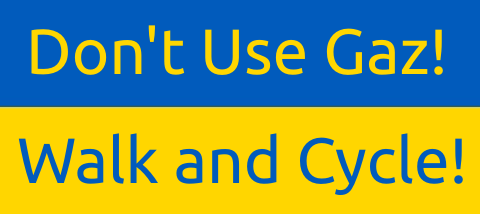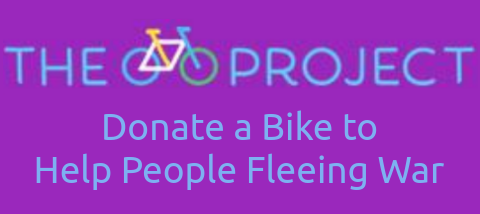
Introduction
This is a plain English interpretation by Push Bikes member Martin of a board paper which is being presented to the WMCA Board on Friday 14 January 2022, written to help people who live in the region understand what funding decisions are being made on their behalf. This document is not associated with West Midlands Combined Authority or Transport for West Midlands in any way. If anything is factually incorrect, please contact us.
Updates
- Saturday 8 January 2022 using the Programme Level Business Case in this document from page 151 onwards .
The City Region Sustainable Transport Settlement
In 2021, the Government announced that city regions would get five-year funding settlements for transport projects. In the West Midlands, this means Transport for West Midlands who work with and on behalf of councils. The funding settlement is called the City Region Sustainable Transport Settlement which is also known as the CRSTS or settlement.
Transport for West Midlands asked for £1.7 billion but only got allocated £1.2 billion. This is a large amount until you spread it among the seven boroughs.
This settlement has to be used until March 2027 and means the region will not get further transport funding from the Government, except for the Integrated Rail Plan.
The settlement also replaces (consolidates) some existing funding and usual funding streams:
- The final year of the Transforming Cities Fund (TCF) - £101 million
- Highway Maintenance Block - £11.3 million in 2021 to 2022
- Integrated Transport Block - £17.755 million in 2021 to 2022
- Potholes - £9 million in 2021 to 2022
The West Midlands is not likely to be successful in getting transport funding through other funding schemes like the Bus Service Improvement Plan (BSIP) scheme. Transport for West Midlands were asking for £450 million from this scheme.
This already leaves Transport for West Midlands around £760 million less than it would like to have had over the five-year period. This is if it received the funding streams and full BSIP funding.
Transport for West Midlands have checked existing projects and schemes to see if they need more money to be completed because of inflation. Schemes that need more money will take money from the settlement or ask for it from Councils. This means many new projects which were suggested will not go ahead and some low priority new projects may not get delivered until the next settlement.
Schemes in the programme
How schemes were chosen
The Department for Transport asked for schemes to:
- Align with our local transport plan and national objectives
- Benefit cycling and active travel
- Benefit public transport, particularly buses
- Support behaviour change, road safety and network resilience
Schemes
The schemes are divided into seven programmes which are the titles used by the Department for Transport in the settlement:
- Supporting inclusive growth - £192 million, 18% of the settlement
- Connecting our places - £416 million, 40% of the settlement
- Healthy streets and spaces - £103 million, 10% of the settlement
- Creating resilient networks and communities - £238 million, 23% of the settlement
- Delivering a green revolution - £46 million, 4% of the settlement
- Making behaviour change easy - £48 million, 5% of the settlement (rounded up)
- Data and programme [management] - £7 million, 1% of the settlement
Most of the programme overviews are vague. There are specific examples in many programmes but others lack specific deliverables.
Supporting inclusive growth
This programme will focus on inclusive growth through job creation and housing developments in six areas, also called corridors, of the West Midlands:
- Improving cycling and walking between Smethwick and Birmingham
- Building a new segregated cycleway between Oldbury and Birmingham City Centre
- Investing in transport in East Birmingham and Solihull:
- Improving cycling and walking
- Building a segregated cycleway along the A45
- Improving access to major employers and employment areas
- Improving roads for buses
- Developing work on rapid transport, for example the planned tram line
- Improving connectivity between Walsall and Wolverhampton:
- Improving the A454
- Making the new Darlaston and Willenhall stations easy to get to by walking and cycling
- Improving walking and cycling in Wolverhampton City Centre
- Extending Sprint to the Black Country and Solihull
- Improving the interchange at Dudley Port station
- Making new tram stops along the Wednesbury and Brierley Hill tram line easy to get to by walking and cycling
Connecting our places
This programme invests in new public transport and improves connections in parts of the West Midlands:
- Maintaining the existing tram line from Wolverhampton to Birmingham
- Extending the tram in Birmingham and the Black Country
- Creating business cases for more tram extensions in Birmingham and the Black Country
- Building a new type of tram, called very light rail, between Coventry Station and Coventry City Centre
- Supporting the Very Light Rail innovation Centre in Dudley
- Installing new measures to prioritise buses
- Improving bus connections between Solihull Town Centre and a new area called UK Central, which is near the NEC, Airport and new HS2 Interchange Station
- Building a new public transport interchange at Sutton Coldfield Station
- Improving and extending West Midlands Bus On Demand
- Building a new train (railway) station at Aldridge
- Creating business cases for more train (railway) stations in the West Midlands, for example Tettenhall in Wolverhampton
- Building new Park and Rides at Whitlocks End and Tile Hill stations
- Creating new plans to improve Solihull and Birmingham Snow Hill stations
Healthy streets and spaces
This programme has schemes to improve how people can get around the West Midlands by walking, cycling and e-scooters. This is also called active travel.
Schemes in this programme include:
- Building 100km of new cycle lanes, including:
- Extending the A38 segregated cycleway from Selly Oak to Longbridge
- Knowle to Solihull Town Centre segregated cycleway
- Dickens Heath to Solihull Town Centre segregated cycleway
- Improving walking and cycling in Birmingham City Centre, Dudley Town Centre and Stourbridge Town Centre
- Building links between cycle routes, for example between the A34 and A38 cycleways
- Making it easier to get between Birmingham New Street, Birmingham Moor Street, Birmingham Snow Hill and the new Birmingham Curzon Street train (railway) stations
|
Context: Some of these schemes were previously funded by the Transforming Cities Fund which has been merged into the settlement. |
Creating resilient networks and communities
This programme has schemes to help roads be effective, safe and modern:
- Maintaining roads and structures, for example bridges and underpasses
- Improving roads for buses, walking and cycling:
- A444, which crosses the West Midlands from Nuneaton to Coventry
- A461, which crosses the West Midlands from Stourbridge to Walsall
- A41, which crosses the West Midlands from Solihull to Wolverhampton
- A4123, which connects Hagley Road in Birmingham and Wolverhampton
- A449, which crosses the West Midlands from Stourbridge to Wolverhampton
- Building a new segregated cycleway along the whole route of the A4123
- Building a route for walking and cycling between Birmingham International station and the new Birmingham Interchange station
|
Context: These schemes might previously have been funded by the Highways Maintenance Block. |
Delivering a green revolution
This programme has schemes to make transport less polluting, also called decarbonisation:
- Building 10 ultra-rapid charging stations for electric vehicles for:
- Shared cars, for example car clubs
- Businesses that do not have depot charging
- Installing 1,600 charging points for electric vehicles, some will be in town and city centres and some will be on-street chargers
- Support the building of a gigafactory in Coventry:
- Building cycling and walking infrastructure on London Road
- Building cycling and walking infrastructure at Whitley Interchange
- Improving roads for buses
- Making 120 existing buses greener by upgrading their engines to new standards
Making behaviour change easy
Behaviour change is a way of encouraging people to change how they use cars. The schemes in this programme will make using public transport and active travel easier:
- Adding pay as you go Swift cards for trains
- Letting people use bank cards and mobile phones to pay for public transport tickets instead of Swift cards
- Capping people at the best price for how they travel, similar to how paying for transport works in London
- Building new hubs in neighbourhoods, town centres and city centres which might have:
- E-scooter hire
- Bike hire
- Bike stands
- Pop-up businesses
- Community services, for example parcel lockers
Data and programmes
These schemes help to:
- Manage and deliver the settlement programmes
- Monitor and evaluate the settlement programmes
- Collect data for evidence when applying for money in the next settlement in 2027
Reserve schemes
Transport for West Midlands has three schemes on the reserve list. This means they might be able to fund them using the settlement if there is money left.
If the delivery of Aldridge Station has to be delayed to the 2027 to 2032 settlement period, works will happen on the A41 Moxley Junction in Walsall.
Some schemes might be eligible for other Combined Authority funding. If they get funded by other funding then they will be removed from the reserve scheme list. The two schemes are a package of transport improvements to new housing developments in:
- Balsall Common, Solihull
- Kerseley, Coventry
How we will find out about progress
The Department for Transport wants Transport for West Midlands to be transparent about progress and decisions made using the settlement.
Transport for West Midlands wants to report in three ways:
- Monthly reviews informally presented to the Mayor and Members of the WMCA Board
- Quarterly reports formally submitted to the Strategic Transport Board and the Mayoral Office
- Annual reports formally submitted to WMCA Board in January
Any changes to schemes will go through WMCA processes and escalate to WMCA Board when needed.
Currently, only WMCA Board, Transport Delivery Committee and Transport Delivery Sub-committee papers are published online via governance.wmca.org.uk. The proposed reporting means the public only gets to see progress reports every January - five times over the course of the settlement.
What happens next
The deadline for submitting the settlement business case to the Department for Transport is on 14 January 2022. This is the same day the WMCA Board meets to approve the business case.
Should the Department for Transport be happy with the business case, this will become the West Midlands' programme for transport improvements between April 2022 and March 2027.
Transport for West Midlands wants to deliver the schemes successfully to show the Government that it can spend the settlement well so they can get more money in the next round of funding in 2027.


